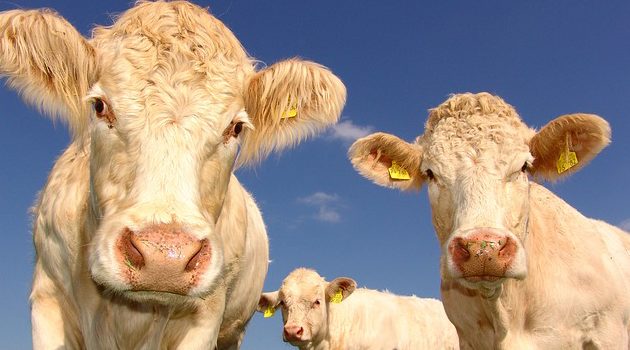January 11, 2017
The past couple of years have delivered blockbuster deals in the agriculture sector, however, consolidation is not limited to only the major players. In recent weeks, dairy cooperatives Prairie Farms Dairy and Swiss Valley Farms unveiled plans to merge, creating a combined entity that is expected to generate $3 billion-plus in annual sales. And as farmers continue to face the one-two punch of margin compression resulting from a low-price environment for dairy commodities in addition to an evolving food retail market, further consolidation could unfold in 2017.
Merger talks between Prairie Farms and Swiss Valley began in mid-2016, Prairie Farms spokesperson Rebecca Leinenbach told GAI News, though the dairy coops are no strangers to deals. For instance, in 2009, Swiss Valley exited the fluid milk business via the sale of its milk plant in Dubuque, Iowa to Prairie Farms. Prior to that transaction Prairie Farms also manufactured some cultured products for Swiss Valley.
“Growth through acquisition has been a critical part of the success for both Prairie Farms and Swiss Valley,” said Leinenbach. “The merger reflects our purpose, which is to generate sales and profit for our cooperative members.”
Thomas Bailey, Rabobank senior analyst focused on the U.S. and global dairy markets, told GAI News that while there has not necessarily been evidence of an uptick in M&A activity among dairy farmer coops in the United States, he anticipates more deals – both big and small– to come through in 2017.
“The dairy industry marches to the beat of its own drum, for the most part,” said Bailey. “So a merger of say big beverage companies won’t necessarily have an impact on dairy coop strategy or intentions. I think the bigger outside impact/pressure would come from these large outside interests beginning to process their own milk, e.g. Wal-Mart. This will put more pressure on the need for efficiency and consolidation that generalizes mergers in the industry.”
Deal Drivers
While the Prairie Farms and Swiss Valley merger may not compare in size to some of the mergers that have gripped the headlines of late, it was definitely on Rabobank’s radar.
“Margins always play a role and we have been in a low pricing environment for a couple of years. There has been a lot of pressure on cooperatives from their members (who are also consolidating), particularly after the low prices we saw for the last two years,” said Bailey.
Meanwhile, dairy farmer coops are faced with a changing retail environment in which grocery chains are facing competition from the likes of Amazon.com and FreshDirect, which Bailey said translates to pressure on traditional retailers, and in turn, cooperatives.
“You also have Wal-Mart now building one of the largest milk processing facilities in the world, which shows the dramatic moves retailers are willing to make in the search for margin,” he said.
As Bailey pointed out, M&A activity among diary coops has been greater in the more fragmented processing industry in the EU compared to the United States, with the cooperative share of total milk processed in the EU standing at 25 percent compared to 45 percent in the U.S. Nonetheless, the Prairie Farms and Swiss Valley deal could be a harbinger of M&A.
“There are more than 50 dairy cooperatives in the U.S. with varying processing capacity, product lines, and geographic placement making it reasonable to assume there will be more activity in the future,” said Bailey.
And while market conditions are looking up somewhat, evidenced by international dairy prices having rallied around 50 percent higher in the second half of last year, farmers still face their share of uncertainties.
“2017 looks to be a better year for dairy farmers as the price of milk has improved and the price of feed has remained low,” Bailey told GAI News. “However, there is a ceiling to how high prices will go due to inventories of product around the world, mainly European intervention stocks. So, while it is likely to be a better year, it’s unlikely to be another 2014.”
Coop Synergies
The combination of Carlinville, Ill-based Prairie Farms and Davenport, Iowa-based Swiss Valley combines two of the U.S. Department of Agriculture’s top-ranked ag cooperatives. Prairie Farms and Swiss Valley are leaders in their respective categories of fluid milk and cheese, respectively, which according to Leinenbach gives both coops an opportunity to extend their product portfolios.
For example, Prairie Farms does not own a cheese manufacturing facility. As a result of the merger, Prairie Farms gains access to five cheese plants. “Cheese is a growth category, and per capita consumption has increased 146 percent since 1975. Conversely, fluid milk consumption has decreased 37 percent,” Leinenbach said.
Meanwhile, Swiss Valley is looking to grow their export business, and with the merger they will gain access to many of Prairie Farms’ products, including extended-shelf-life milk and cream.
And as Rabobank’s Bailey noted, the U.S. and other developed markets such as the EU have seen solid demand growth for dairy products high in fat such as cheese and butter. This has helped to offset lower prices in proteins, which tend to be exported to developing markets such as China where import requirements have been lower, he said.
If approved, the deal between Prairie Farms and Swiss Valley is expected to close in mid-2017.
–Gerelyn Terzo

Let GAI News inform your engagement in the agriculture sector.
GAI News provides crucial and timely news and insight to help you stay ahead of critical agricultural trends through free delivery of two weekly newsletters, Ag Investing Weekly and AgTech Intel.




